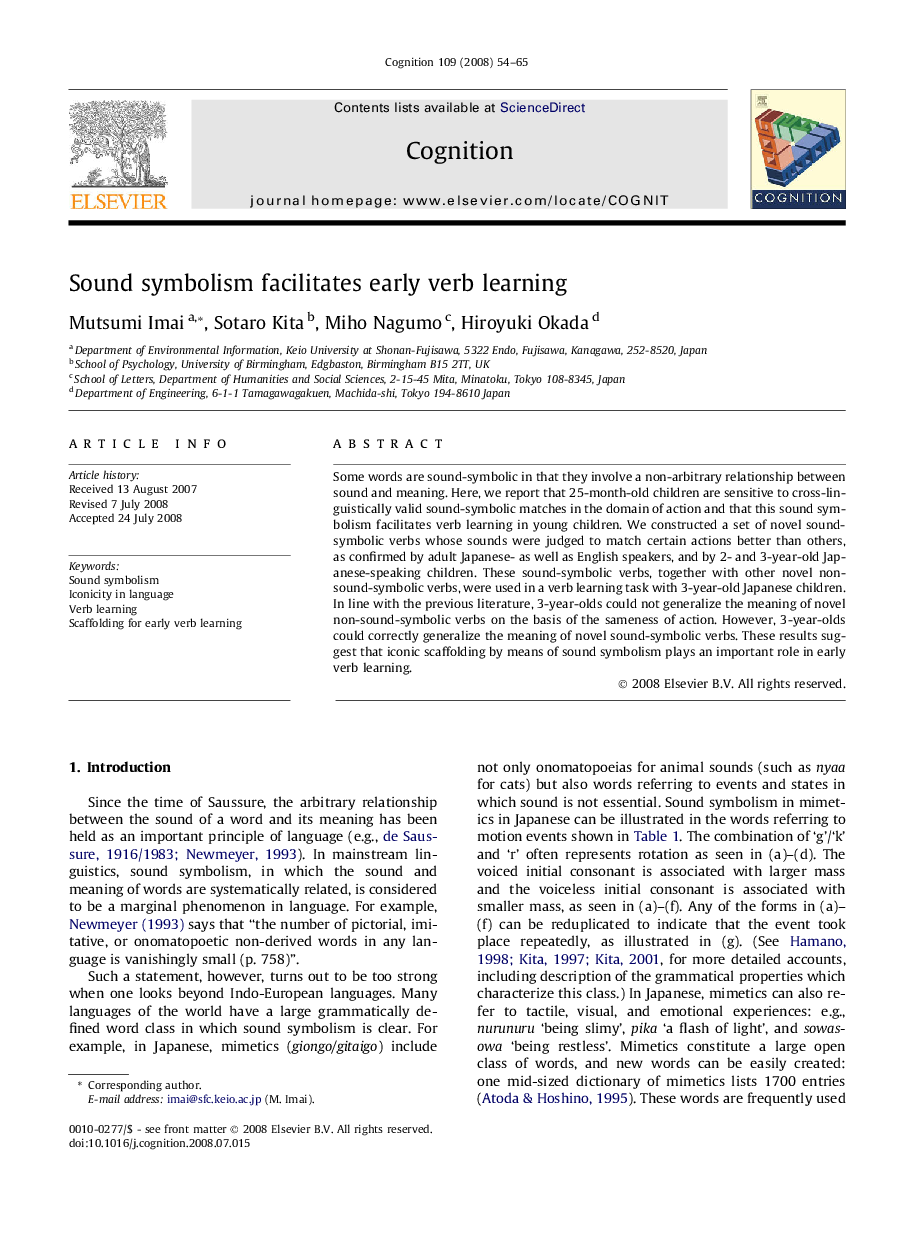| Article ID | Journal | Published Year | Pages | File Type |
|---|---|---|---|---|
| 10458030 | Cognition | 2008 | 12 Pages |
Abstract
Some words are sound-symbolic in that they involve a non-arbitrary relationship between sound and meaning. Here, we report that 25-month-old children are sensitive to cross-linguistically valid sound-symbolic matches in the domain of action and that this sound symbolism facilitates verb learning in young children. We constructed a set of novel sound-symbolic verbs whose sounds were judged to match certain actions better than others, as confirmed by adult Japanese- as well as English speakers, and by 2- and 3-year-old Japanese-speaking children. These sound-symbolic verbs, together with other novel non-sound-symbolic verbs, were used in a verb learning task with 3-year-old Japanese children. In line with the previous literature, 3-year-olds could not generalize the meaning of novel non-sound-symbolic verbs on the basis of the sameness of action. However, 3-year-olds could correctly generalize the meaning of novel sound-symbolic verbs. These results suggest that iconic scaffolding by means of sound symbolism plays an important role in early verb learning.
Keywords
Related Topics
Life Sciences
Neuroscience
Cognitive Neuroscience
Authors
Mutsumi Imai, Sotaro Kita, Miho Nagumo, Hiroyuki Okada,
